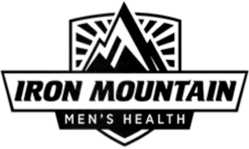Finding Testosterone Replacement Therapy In Philadelphia, PA
There are many reasons why you may be looking into testosterone replacement therapy, or TRT, and it’s important to understand all of the options that you have in and around Philadelphia, PA. You should also have a basic understanding of how TRT works and why it benefits you. Let’s begin with what low testosterone, sometimes called low T, is, and why it can become an issue for some men

Sometimes, low testosterone isn’t an issue at all. Hormone production naturally becomes slower or lesser than it used to be as men age, meaning they won’t have as much testosterone in their bodies as they used to in their younger years. For some people, they can continue to live normally, as life tends to slow down anyway as you grow older.
This is, however, something of a self-fulfilling prophecy. It may be the case that many men ‘settle’ for a slower-paced life due to a lack of testosterone from aging, meaning that they shouldn’t have to put up with this pace if they don’t want to. With TRT or other options, these men could potentially increase the pace of their lives, with regards to daily function and sexual activity and health.
The key to low testosterone treatments is that everyone is different, and many people need entirely different approaches to each other. That’s why we treat patients as individuals at Iron Mountain Men’s Health – we know that you need the approach that’s right for you, not the one that’s right for everyone else.
Have I Got Low Testosterone? – Symptoms
It’s difficult for an ordinary person to tell how much testosterone someone has just by looking at them. In general, men begin to have lower levels of testosterone when they are at the end of their 20s or the beginning of their 30s. The hormone performs a lot of its work in the background, although not having enough testosterone does have some physical symptoms.
- Low mood or depression
- Gaining weight
- Fatigue or low levels of energy
- Loss of sex drive (libido)
- Loss of muscle mass
- Bad memory
- Erectile dysfunction
Have I Got Low Testosterone? – Testing
If you are experiencing any of these symptoms, you may wish to get an evaluation from Iron Mountain Men’s Health. We can carefully analyze your levels of testosterone and decide on the right treatment for you. Also, we will require a medical history relevant to your potential treatment. Questions could focus on:
Please note that this isn’t an exhaustive list, and you could be asked about other relevant areas of your medical history. This is all asked with the aim of understanding your personal treatment options and what will be best for you as an individual.
There are also physical tests that will be carried out to aid your evaluation. These tests are designed to help us work out how low testosterone is affecting you, if it is. These tests could involve:For weight gain/obesity
For sizing/placement
For volume and pattern
For sizing
Again, this is not an exhaustive list. Along with these tests, you will need to undergo blood tests which will measure the levels of several hormones in your blood. These can both identify if you have low testosterone levels and also potentially pinpoint the cause of your low testosterone.
Why Do I Have Low Testosterone?
As mentioned earlier, it’s normal for men’s testosterone levels to lessen as they grow older. However, some treatments and conditions can cause this process to rapidly increase in pace, which can leave many men with undesirable side effects or a great impact on their personal lives.
We generally categorize the causes for low testosterone into two categories: internal and external. Internal factors are usually conditions that men are born with. These can include (but are not limited to):
- Klinefelter syndrome (or XXY syndrome; when you have an extra X chromosome)
- Noonan syndrome
- Kallman syndrome
- Ambiguous genitals (abnormally developed sexual organs)
- Congenital defects
External factors are usually related to the environment and can include injuries or treatments. The external factors that can cause low testosterone include (but are not limited to):
- HIV/AIDS
- Chemotherapy or radiation therapy
- Testicle removal (i.e. due to cancer)
- Opioids
- Steroids
- Alcohol abuse
- Testes injury or infection
- Obesity
- Extreme weight loss
- Sleep apnea
- Aging
- Head trauma
- Brain tumor/surgery

How Will Testosterone Replacement Therapy Help Me?
Testosterone replacement therapy is sometimes called androgen replacement therapy or TRT. It restores testosterone in your body and can balance your hormone levels.
There are several options when it comes to TRT. You can take oral medication, topical creams, patches, gel, or other methods. It’s crucial to remember that you should only use TRT supplements when you have a legal prescription from a licensed doctor for them. This is best for you, as well, since it should keep you safe and healthy.
At Iron Mountain Men’s Health, we’ll talk you through all of the TRT options and decide on a treatment plan that’s right for you. Next, we’ll take you through the TRT process.
What Will Happen If I Get TRT?
Before you undergo TRT, you’ll go through the tests we mentioned earlier. One of the most important tests is the red blood cell test, wherein we’ll measure the level of red blood cells present in your body. This is because TRT is firmly not recommended for people with below 54% red blood cell presence.
Other options that can potentially disqualify you from TRT are an unusually large prostate, a medical or family history of prostate cancer, uncontrolled heart failure, or if you are currently going through prostate cancer treatment. These factors will be considered on a case-by-case basis.
After you have undergone TRT, you should notice several key changes within your body. Primarily, the negative effects of low testosterone should begin to turn around. For example, it is likely that you will regain a lost sex drive (or libido) and feel like you have much higher energy levels.
You may experience some side effects from TRT. This is nothing to worry about, as we’ll ensure that we keep monitoring you throughout and after your treatment to limit these side effects. We’ll also be able to adjust and alter your TRT as needed. Side effects could include:
- Prostate-related issues
- Red blood cell level changes
- Cholesterol level changes
- Hormone level changes
- Hair loss
- Testicular shrinkage
- Acne
- Breast tissue growth
- Decreased sperm count
- Sleep apnea
The FDA requires that TRT products carry a warning about the increased risk of blood clots occurring in veins. This treatment may or may not increase the risk of heart attacks and death for those with or without heart disease.
Here at Iron Mountain Men’s Health, we make your healthcare our priority. We will analyze your individual hormone levels and continue monitoring them throughout your treatment. With our experience and expertise, we can develop a treatment plan which could restore your life’s pace and excitement, as well as bringing your virility back.
